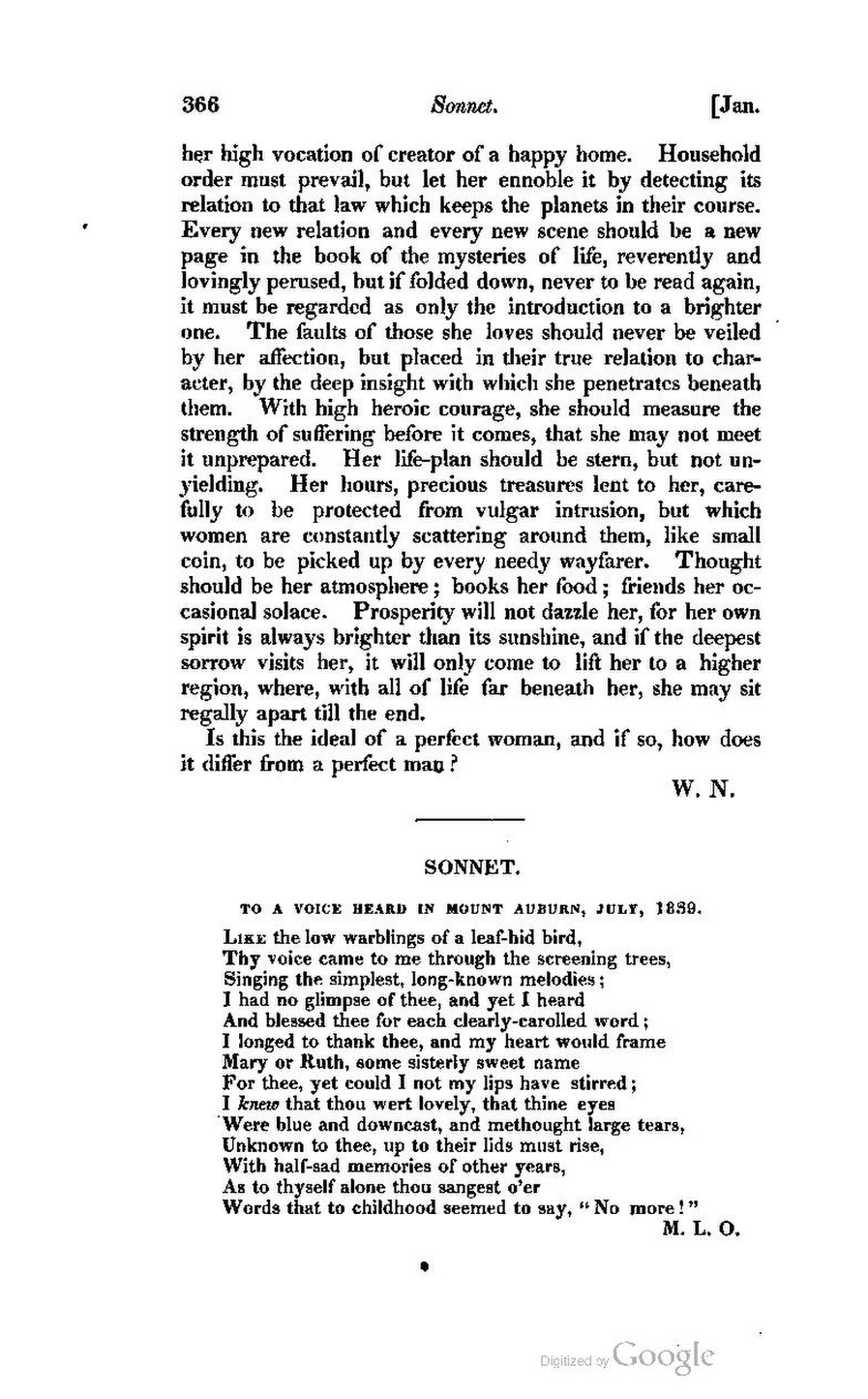her high vocation of creator of a happy home. Household order must prevail, but let her ennoble it by detecting its relation to that law which keeps the planets in their course. Every new relation and every new scene should be a new page in the book of the mysteries of life, reverently and lovingly perused, but if folded down, never to be read again, it must be regarded as only the introduction to a brighter one. The faults of those she loves should never be veiled by her affection, but placed in their true relation to character, by the deep insight with which she penetrates beneath them. With high heroic courage, she should measure the strength of suffering before it comes, that she may not meet it unprepared. Her life-plan should be stern, but not unyielding. Her hours, precious treasures lent to her, carefully to be protected from vulgar intrusion, but which women are constantly scattering around them, like small coin, to be picked up by every needy wayfarer. Thought should be her atmosphere; books her food; friends her occasional solace. Prosperity will not dazzle her, for her own spirit is always brighter than its sunshine, and if the deepest sorrow visits her, it will only come to lift her to a higher region, where, with all of life far beneath her, she may sit regally apart till the end.
Is this the ideal of a perfect woman, and if so, how does it differ from a perfect man?
SONNET.
TO A VOICE HEARD IN MOUNT AUBURN, JULY, 1839.
Like the low warblings of a leaf-hid bird,
Thy voice came to me through the screening trees,
Singing the simplest, long-known melodies;
I had no glimpse of thee, and yet I heard
And blessed thee for each clearly-carolled word;
I longed to thank thee, and my heart would frame
Mary or Ruth, some sisterly sweet name
For thee, yet could I not my lips have stirred;
I knew that thou wert lovely, that thine eyes
Were blue and downcast, and methought large tears,
Unknown to thee, up to their lids must rise,
With half-sad memories of other years,
As to thyself alone thou sangest o'er
Words that to childhood seemed to say, “No more!"
